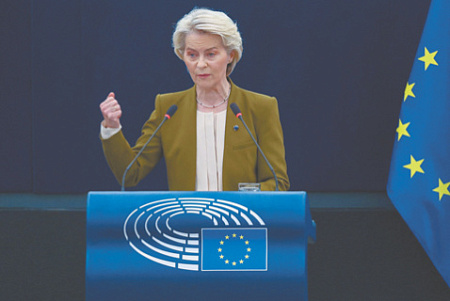
High-stakes trade negotiations between the United States and China in Madrid have taken a confrontational turn, as Washington threatens to impose steep new tariffs in retaliation for Beijing’s support of Russia’s military-industrial complex. The American delegation, including Treasury Secretary Scott Bessent and Trade Representative Jamieson Greer, has broadened the economic dialogue to include geopolitical pressures, placing China’s powerhouse export economy in the crosshairs of Western efforts to isolate Moscow.
Beijing has responded forcefully to the American ultimatum. China’s Ministry of Commerce asserted that its trade relationship with Russia is legitimate and complies with international norms, vowing to answer any discriminatory tariffs with firm countermeasures. The talks, which also address pre-existing tariff disputes and the future of the social media giant TikTok, now hinge on Washington’s ability to pressure Beijing, a move that could be part of a coordinated strike against Russia’s support systems, as some European officials have forecasted.
This aggressive stance is part of a broader strategy by the Trump administration to build a unified front against nations maintaining economic ties with Russia. Washington has already imposed 50% tariffs on imports from India and President Trump has voiced readiness to levy similar, or even 100%, tariffs on China, contingent on parallel actions from NATO and a hesitant European Union. However, analysts question the feasibility of such a move, given the deep integration of Chinese goods in the American market and the potential for a dramatic spike in consumer prices.
Simultaneously, the European Union is independently advancing its own punitive measures. An EU Commission spokesperson confirmed that work on a 19th sanctions package against Russia is underway. While it will not include an immediate, total ban on Russian energy, it is expected to target Russia’s ‘shadow fleet’ of oil tankers and financial institutions in third countries, possibly in Central Asia. Proposals to ban Schengen tourist visas for Russian citizens are also on the table, though their inclusion in the final package remains unconfirmed.
Despite the heated rhetoric, both the U.S. and China appear keen to prevent a total collapse of the world’s most critical bilateral economic relationship. The Madrid talks were extended, and a phone call between President Trump and Chinese President Xi Jinping is scheduled, signaling that channels of communication remain open. With a fragile truce on existing tariffs set to expire in November, negotiators are racing against the clock to find a path forward amid a complex web of trade disputes and escalating geopolitical rivalry.
